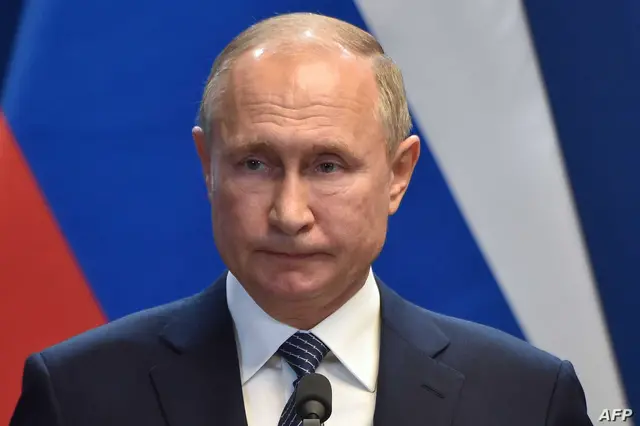President Vladimir Putin proposed Wednesday to tweak the Russian Constitution to increase the powers of parliament and the Cabinet — a move that could herald his intention to shift into a new position to stay at the helm after his current term expires.
Speaking in his state of the nation address before top officials and lawmakers, Putin suggested amending the constitution to allow lawmakers to name prime ministers and Cabinet members. The right currently belongs to the president.
“It will increase the role of parliament and parliamentary parties, powers and independence of the prime minister and all Cabinet members,” Putin said.
At the same time, Putin argued that the president should retain the right to dismiss the prime minister and Cabinet ministers. He said that the president also should have the power to name top defense and security officials.
Putin emphasized that constitutional changes must be put to a nationwide vote.
Putin’s current term expires in 2024, and Russia’s political elites have been abuzz with speculation about his future plans.
The 67-year-old Putin has remained at the helm for more than 20 years — longer than any other Russian or Soviet leader since Josef Stalin. He will have to step down after his term ends under the current law, which limits the president to two consecutive terms.
Political analyst Kirill Rogov said that Putin’s proposals indicate his intention to remain in charge while re-distributing powers between various branches of government.
“Such a model resembling the Chinese one would allow Putin to stay at the helm indefinitely while encouraging rivalry between potential successors,” Rogov said on Facebook.
Putin served two presidential terms in 2000-2008 before shifting into the prime minister’s seat for four years to observe the term limit. His placeholder as president, Dmitry Medvedev, stepped down after just one term to allow his mentor to reclaim the top job in 2012. While in office, Medvedev raised the presidential term from four to six years.
While Putin continued calling the shots during Medvedev’s presidency, he wasn’t quite happy with his performance. He was particularly critical of Medvedev’s decision to give the green light to the Western air campaign over Libya in 2011 that led to the ouster and the killing of long-time dictator Moammar Gadhafi.
Medvedev’s decision to step down after one term to let Putin return to the presidency also sparked massive protests in Moscow in 2011-2012 in a major challenge to the Kremlin.
Observers speculated that Putin may stay in charge after 2024 by shifting into the prime minister’s seat after increasing the powers of parliament and the Cabinet and trimming presidential authority.
Other potential options include a merger with neighboring Belarus that would create a new position of the head of a new unified state — a prospect rejected by Belarusian President Alexander Lukashenko.
In his address, Putin said the constitution must also specify the authority of the State Council consisting of regional governors and top federal officials.
Some analysts have theorized that Putin may try to continue pulling the strings as head of the council after stepping down as president in 2024.
Putin also emphasized the need to amend the constitution to give it a clear priority over international law.
“The requirements of international law and treaties and decisions of international organs can only be valid on the territory of Russia as long as they don’t restrict human rights and freedoms and don’t contradict the constitution,” he said.
He also said that the constitution must be tweaked to say that top government officials aren’t allowed to have foreign citizenship or residence permits.
Putin focused his state of the nation address on the need to encourage population growth and create new incentives for economic growth.
He said that the authorities need to do more to encourage new births and support young families.
Putin emphasized that low incomes remain a key obstacle to population increase. Russia’s population currently stands at about 147 million.
The Russian leader that the nation is currently facing the consequences of the post-Soviet economic meltdown that resulted in a steep drop in new births.
He promised that the government would offer additional subsidies to families that have children.
(AP)
 简体中文
简体中文

